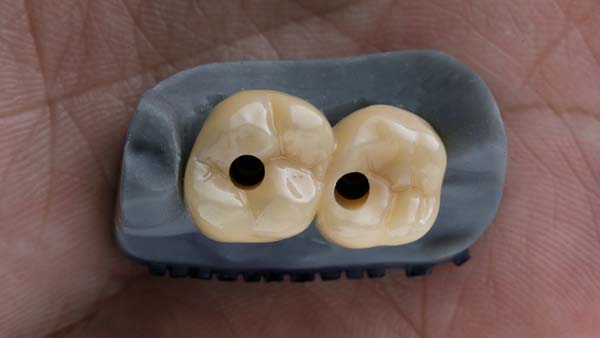How Long Does Dental Implant Placement Take?

Getting dental implants is an important choice in your goals for good oral health. This treatment is also a great way to restore your smile and feel good about your appearance again. If you compare implants to other tooth-replacement options, you will see the differences and benefits that implants offer. The process of getting implants can be long and challenging, though. You should learn everything you can about this procedure so you can be prepared and feel more positive about the experience.
Factors that lead to tooth loss
When children lose baby teeth, it is a big celebration. When a person loses a permanent tooth, it is no cause to rejoice. Living without teeth can affect a person’s ability to eat a healthy diet. It can even change a person’s speech and the shape of their face. There are also, of course, impacts on the individual’s self-esteem. Tooth loss can be embarrassing.
Sometimes, tooth loss occurs due to no fault of the individual. A hard blow to the face from a fall, collision, or another type of injury can knock out a tooth. In other cases, poor oral hygiene is the main cause. Failure to brush and floss properly and frequently can cause decay and infections. Without intervention, this can cause tooth deterioration, bone, loss, and tooth loss.
Starting the dental implant process
When the dentist and patient decide that dental implants make the most sense, there will be an initial, preparatory appointment. Here, the dentist will take X-rays and make impressions of the person’s mouth. If necessary, the dentist may extract damaged teeth. The dentist will then schedule another appointment for the first implant surgery.
Placing the dental implants
Depending on how many implants the patient is getting, the first surgery should take around an hour. If the patient needs multiple implants, the individual should plan on two hours for the procedure. The dentist will numb the patient with a local anesthetic. Once the patient is comfortable, the dentist will make an incision in the gums. Then, the general dentist will insert a screw-like dental implant deep into the jaw. The dentist then closes the wound.
Getting the abutments
After the first step, the bone and implant need time to fuse. The patient will also heal over the next several weeks. Sometimes, this period can take up to six months or more, depending on the patient’s recovery. Once ready, the patient returns to the office for the next surgery. The dentist again numbs the patient and reopens the gums, exposing the tops of the implants. A smaller piece called an abutment attaches to the dental implant.
Getting the crown
After a couple of more months of healing, the patient returns to the dentist’s office. The dentist will attach natural-looking crowns to the abutments. The crowns will match the color, shape, and size of any remaining teeth. The dentist will check to make sure the fit is comfortable and secure.
Worth the time and effort
Getting dental implants can take up to several months from start to finish. There will be some discomfort and soreness with the process. The recovery period can also be challenging. However, the results are long-lasting and can restore your mouth’s function. You can also be happy with your new smile.
Request an appointment here: https://www.anabelladentistry.com or call AnaBella Family and Cosmetic Dentistry at (425) 615-6654 for an appointment in our Bellevue office.
Check out what others are saying about our dental services on Yelp: Dental Implants in Bellevue, WA.
Related Posts
Laser dentistry is changing the way some dentists perform common dental procedures. This advanced dental technology utilizes special dental lasers instead of more traditional dental instruments. In addition to crown lengthening and gum disease treatment, dental lasers can also be tools for root canal procedures.A root canal is necessary when a dental patient experiences an…
Clear aligners are a great way to straighten your smile discreetly. However, clear aligners require good oral hygiene to ensure no oral health complications develop during treatment. This review discusses the risks of not cleaning teeth properly each day when going through clear aligner treatment.The risks of poor oral hygiene are often amplified when wearing…
Two popular choices for restoring damaged teeth are same-day crowns and traditional crowns. Both of these treatment options are effective for improving your oral health and the appearance of your smile. However, there are differences in the placement process. The following guide outlines the benefits and limitations of each type of dental crown to help…
Professional teeth cleaning in general dentistry is an essential part of maintaining good oral health. However, some patients are curious to know if they can cause damage to their teeth. While it is rare, understanding the possibility can be helpful.Individuals who undergo professional teeth cleanings on a regular basis may be at risk of weakening their…
